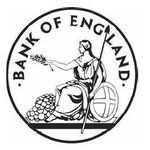Out of the nine members of the Bank of England’s MPC (Monetary Policy Committee), only two voted against keeping interest rates at a record low of 0.5% at October’s meeting, which was the same proportion as in September and August. Some analysts had been expecting the split to widen, while others thought the opposite might occur.
According to the minutes of the meeting which took place on October 7-8, seven members felt there was “insufficient evidence” that inflationary pressure justified raising interest rates.
As they did in the previous two meetings, Martin Weale and Ian McCafferty voted to raise the benchmark rate to 0.75%.
The Bank of England wrote:
“Regarding Bank Rate, seven members of the Committee (the Governor, Ben Broadbent, Jon Cunliffe, Nemat Shafik, Kristin Forbes, Andrew Haldane and David Miles) voted in favour of the proposition. Ian McCafferty and Martin Weale voted against the proposition, preferring to increase Bank Rate by 25 basis points.”
The two MCP hawks: Ian McCafferty (left) and Martin Weale.
Given recent deterioration in the Eurozone and some aspects of the UK economy, some economists said they would not have been surprised had the vote been unanimous.
A couple of months ago, most bets were on a rate hike either early in 2015 or even before the end of this year. Now most analysts do not expect this will occur until at least the middle of 2015.
UK inflationary pressures easing
In their October meeting, MPC members would have seen the UK’s inflation data, which showed that price rises had fallen to 1.2% – a five-year low.
The Bank of England’s Chief Economist, Andrew Haldane, said last week that interest rates should not be increased, otherwise there might be a serious risk of protracted economic stagnation.
Mr. Haldane, who Time magazine listed as one of the 100 most influential people worldwide, had been keen on an interest rate hike just a few months ago. He said last week that recent evidence had changed his forecasts for the UK economy, and also the world.
He is now less optimistic regarding demand in the UK and believes inflationary forces will weaken further in the near term.
The UK economy is growing strongly, there is an excellent balance between consumption and investment, employment is high, and borrowing costs are low, he said. However, real wages have only risen in 3 of the past 74 months, productivity has not improved since 2008, and real interest rates are just about at zero, he added.
This combination is “virtually unprecedented going back to the late 1800s, with the exception of the aftermath of the world wars and the early 1970s,” Mr. Haldane said.
The British economy appears to be “writhing in both agony and ecstasy. It is twin peaked,” he said. The big worry is which one will prevail.


